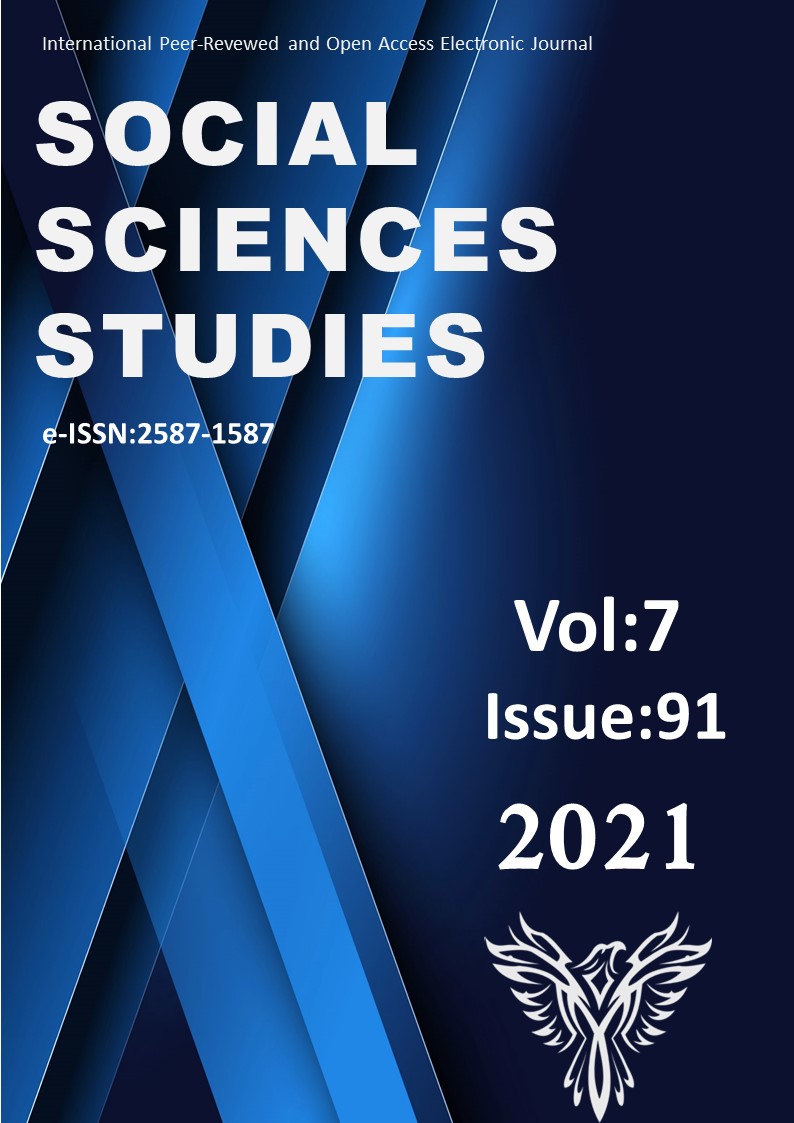Author :
Abstract
Bu çalışmanın amacı, eğitim felsefesinde önemli çalışmalar yapmış olan Peters’ın ahlaki gelişime ve ahlaki eğitime yönelik fikirlerini analiz etmek ve Kohlberg’in ahlaki gelişim teorisine yönelik yapmış olduğu katkıyı göstermeye çalışmaktır. Peters çağdaş eğitim felsefecisi olarak, eğitimin analizi ve gerekçelendirilmesi konusundaki çalışmalarıyla tanınmaktadır. Eğitim çalışmaları içerisinde ahlak gelişimi ve ahlak eğitimine yönelik ortaya koyduğu teorileri önemli bir yere sahiptir. Peters’a göre toplumsal değişim ve ekonomik gelişmeler sonucunda ahlak meseleleri, geleneklerden ve hukuk meselelerinden ayırt edilmiş ve insanlar yavaş yavaş özerk ahlaki varlıklar olarak kendi ayakları üzerinde durabilecek güce erişmiştir. Peters bu durumdan etkilenerek ahlaki gelişime ve ahlaki eğitime yönelik çalışmalar yapmıştır. Öncelikli olarak Kohlberg’in ahlaki gelişim teorisini incelemiş ve bu teori üzerine eklemeler yaparak ahlaki eğitimle ilgili geniş bir çerçeve oluşturmaya çalışmıştır. Kohlberg, ahlaki evrelerin geçişinde biçimsel yapıya önem verirken Peters, genişletilmiş yeni teorisinde hem biçime hem de içeriğe önem vermiştir. Zira Peters’a göre, ayırt edebilir ilkeler, temel kurallar ve iradenin nitelikleri ahlak biçimine aitken, özel kurallar, değerli faaliyetler ahlakın içeriğine aittir. Kohlberg, ahlaki evrelerin geçiş aşamasında öğretimin bir etkisinin olmadığını vurgularken Peters, eğitimin geneline ahlak eğitimini yerleştirmiştir. Sonuç olarak Peters, Kohlberg’in ahlaki gelişim teorisini kendi fikirleri doğrultusunda geliştirerek güçlü bir ahlaki gelişim teorisini oluşturmuş ve bu doğrultuda ahlaki eğitimin önemini farklı açılardan göstermiştir.
Keywords
Abstract
The aim of this study is to analyze the ideas of Peters on moral development and moral education, who has done important studies in the philosophy of education, and to try to show his contribution to Kohlberg's theory of moral development. Peters is a contemporary educational philosopher known for his work on the analysis and justification of education. His theories on moral development and moral education have an important place in his educational studies. According to Peters, as a result of social change and economic developments, moral issues were separated from customs and legal issues, and people gradually reached the power to stand on their own feet as autonomous moral beings. Peters was also influenced by this situation and worked on moral development and moral education. First of all, he examined Kohlberg's theory of moral development and tried to create a broad framework for moral education by making additions to this theory. While Kohlberg gave importance to formal structure in the transition of moral stages, Peters gave importance to both form and content in his extended new theory. For, according to Peters, distinguishable principles, ground rules and qualities of the will belong to the moral form, while special rules, valuable activities belong to the content of morality. While Kohlberg emphasized that teaching had no effect on the transitional stage of moral stages, Peters placed moral education in general education. As a result, Peters developed a strong moral development theory by developing Kohlberg's theory of moral development in line with his own ideas, and in this direction, he showed the importance of moral education from different perspectives.
